My name is Amanda, I have Interstitial Cystitis, but Interstitial Cystitis doesn’t have ME. Once I thought that.
I would like to take this opportunity to share my story with you, on my journey through diagnosis and my daily life with “IC”.
My diagnosis of Interstitial Cystitis is much like the story of millions of other women across the United States. Mine was first confused with non-bladder related things, then diagnosed with a potassium sensitivity test. It was diagnosed May of 2010.When I was diagnosed with IC, we first tried the diet, which is no acidic foods – no tomatoes/ onions/ most fruits/no chocolate/no tea/no caffeine/ no spicy foods and no soy. This took a while to adjust to, and a couple years later, I still have issues with the diet at times, but thankfully, there’s an app for that! Then we tried a multi-modal approach, and physical therapy among other things.
Learning to live with Interstitial Cystitis has been a challenge not only for myself, but for my family as well. We have learned to read the labels on foods, changed the way we eat and cook. Our activities have changed as a family also, which has probably been the hardest obstacle to overcome.
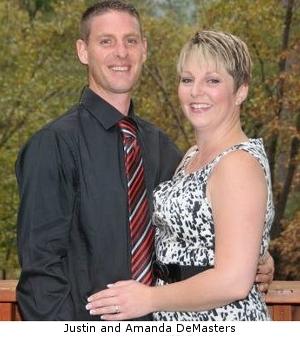
Having Interstitial Cystitis can make you look a little lazy. It’s not so much the disease, as the side effects of the medications. You see, there is no silver bullet to fix it. There is no known treatment either. But there is positivity, faith, love and support from family/friends and the IC Community.
I personally have tried many different treatments, most to no avail. I have an amazing set of doctors to tend to my care, both locally and at UC Stanford. I have had many surgeries, cutting edge and ordinary. Still I have what is classified as “moderately severe Interstitial Cystitis.”
My day is pretty simple. I wake up to an alarm and my husband and I work as a team to get our daughter ready for school. During that hour I probably have to “go” 3 times or so, and it’s like that all day. On an average day, I “go” about 20-25 times. On a bad day or a “flare up,” it’s more.
After my daughter is off to school, I check on different prescriptions, then usually have to lay down from the pain. I log on to one of my support groups, and chat a while. I do some picking up around the house, and then it’s back to laying on the couch to see if there is anything good on those 9,000 channels, until I realize again I will never like daytime TV.
I check to see if there are any new trials that I may qualify for, that are close enough for me to travel to, as these are pretty much my light at the end of the tunnel.
I have two options left at this point in time since there is no cure, no treatments, and no federally funded research funds. I can either live life as I am, where I miss out on birthday parties, events and most social engagements because I am too weak and worn out, or I can have my bladder removed.
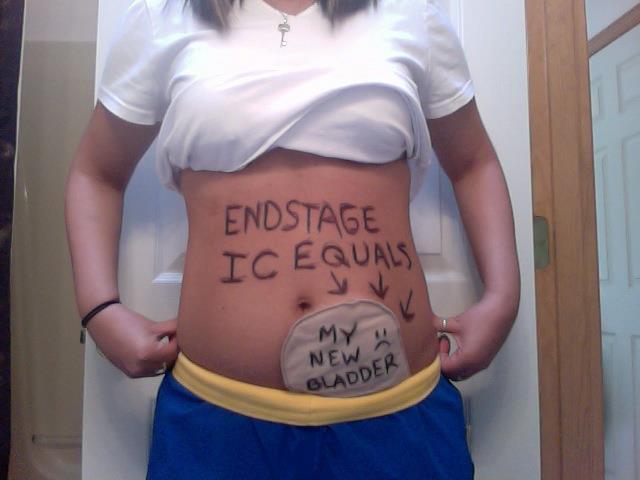
But I would get 2-5 years of “life” back. “Life” worth living with my family. It is so intriguing, but these days with insurance companies playing doctor, it is not an easy feat to accomplish, and it is not something where you can go back and say, “Oh Doc, I changed my mind.”
This is why our support groups are SO very important. Whether the support is our family, friends, the IC Community online or in person. One doctor’s office that hosts a support group meeting in Fresno told us they see over 300 patients with IC that live in the valley. It is more common than you know.
Some facts that I would like to share with you –
– 3 to 8 million women and 1 to 4 million men have IC in the USA.
– IC patients often face serious struggles not only in diagnosis and treatment, but also in pain care and compassionate treatment.
– Students with IC have been punished for asking to use the restroom.
– September is the official month for Interstitial Cystitis Awareness.
There is a book called The IC Survival Guide, and that’s what it is – it’s “survival.” There is one thing from that book I will always remember vividly. The author is a doctor, and he says that if he had to describe to another doctor what moderate-to-severe IC is like for a patient, he would have to describe it in two parts.
First, he would compare the IC patient to a stage-4 cancer patient, as the stage-4 cancer patient will experience less daily pain than the moderate-to-severe IC patient.
Then he would compare the IC patient to a patient on daily kidney dialysis, because the dialysis patient would have a better quality of life than the moderate-to-severe IC patient.
We cry out our pain, we hold fast to our faith in God, we pray for a cure, and we hope, hope for a better tomorrow. We keep a positive outlook, start each day as a new day and go from there. It is what it is, and today might not change, but maybe tomorrow it will. There is ALWAYS hope.
For more information on how you can help, please visit www.ic-network.com or www.ichelp.org
I truly thank you for the time you have taken it to read this. If you have any other questions about Interstitial Cystitis or the common ramifications that come with it, please feel free to contact me at demasters@netptc.net.
I LOVE LOVE LOVE Rosie the Riveter she is MY mantra for when I need to get tougher and fight stronger against this disease and all that accompanies it.
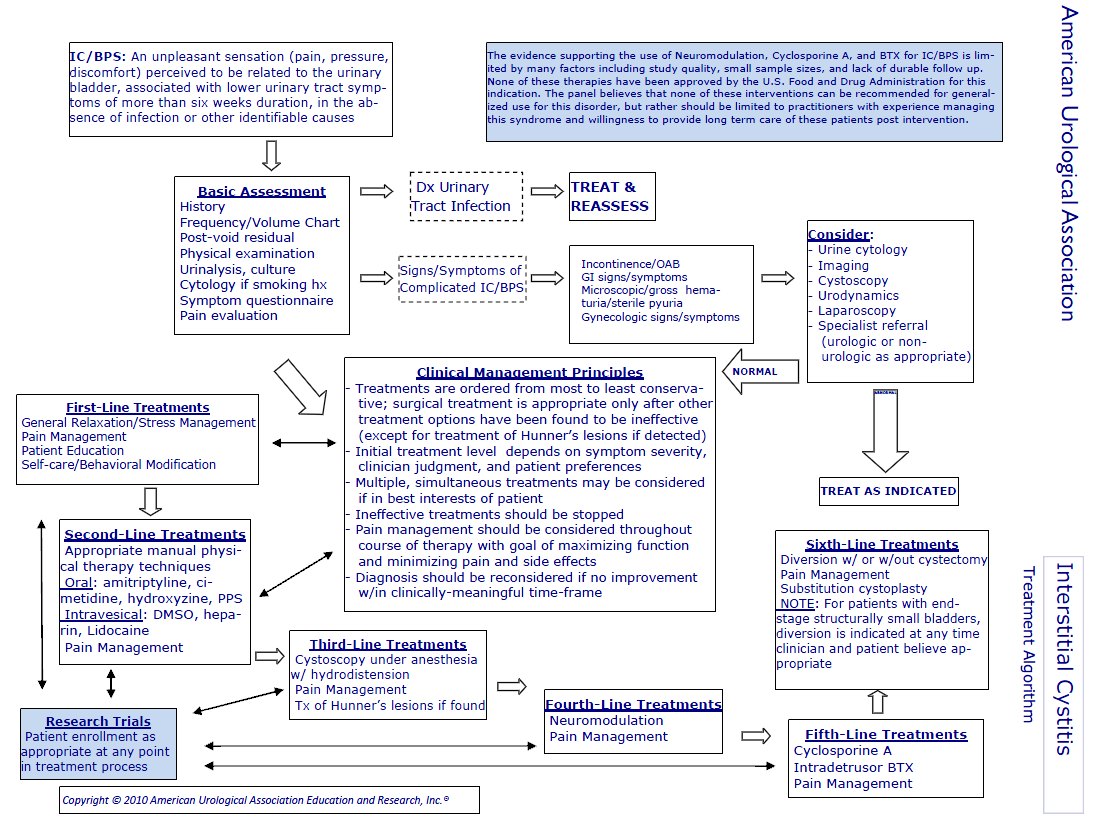

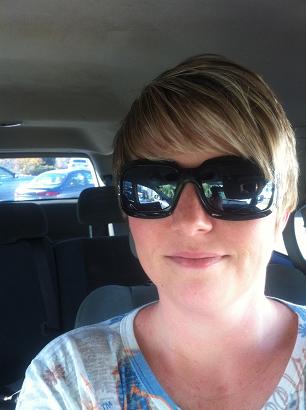
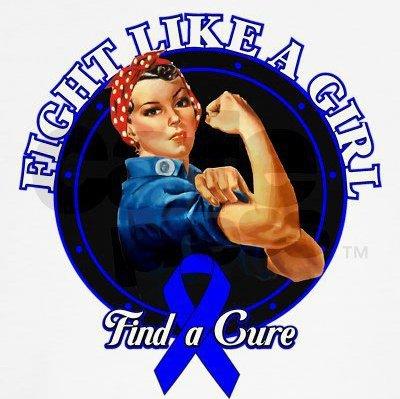
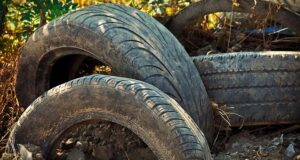

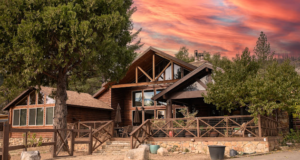
You Go Girl !!!!!
Hi its Amanda DeMasters, and one thing I left out in the article is that I would like to start a local support group up here in the mountains.
So if you have IC and you would like to meet up once a month or so, Please contact me at demasters@netptc.net
Thank you again!
Much appreciation,
Amanda
Well written and informative article. So many people walking around with “invisible” diseases and we never know what kind of a day, someone is having. Thanks for stepping out and letting us know.
Wow, Amanda!! I knew something was going on with you but I had no idea!! I am very proud of you!! Remain strong, and remember you have some one else in “your corner” praying for you with so much faith… “me” Thank you for sharing so much information! I know that this will help some one else too! Love you sweetheart! Robyn
Amanda you are an incredible woman! Brave, intelligent, and human! Thank you for putting yourself out there and informing us on life in your shoes and the many others who face your disease and similar ones on a daily basis! What a great role model you are for your daughter and all women! You and your family are in my thoughts and prayers!
Its amazing that you wrote this, My daughter and I were just talking about IC, she has lived with it for years. She is ok for awhile and then has flare ups. Unfortunately she doesn’t live in the are, I think she would benefit from a support group. We read your story and appreciate your candidness. We had never heard about changing her diet. She is in her early twenties now and has had to take time off college because of the pain and having to leave the class so often.